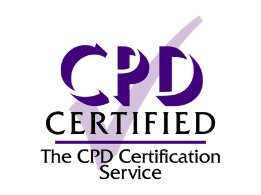Nobody enjoys having difficult conversations.
Yet, despite the uncomfortable nature of these discussions, they are an inevitable part of the job for team leaders.
Negative feedback, workplace conflict, performance, addressing sensitive subjects, discussing personal issues – all of these are subjects you have to talk about and resolve at some point.
If you refrain from engaging in these difficult conversations, problems can fester within your team. These problems can cause everything from strained relationships between employees to negatively affecting productivity.
As part of your leadership development training, you need to have difficult conversations with your team. The following reasons will explain why.
Clear up misunderstandings
Even if you emphasise clear and open communication, misunderstandings will still crop up. For example, this could result in you having a certain viewpoint of a situation while an employee understands events differently.
Rather than believing the employee is the problem, be open-minded when approaching the subject. Take into account both sides of the story. By having a quick chat, you may discover that problem was just a misunderstanding.
A clear path to move forward
Problems can arise which are difficult to ignore. They can distort your view and get in the way of progress. This is usually the same for the rest of your team. Rather than letting these problems linger like a bad smell, it’s best to deal with them straight away so your business can move forward.
Engaging in honest and open discussions can better understand these problems and know which changes must be made. For instance, you might realise a particular process isn’t functioning correctly or that a staff member requires additional training.
Your business is secure
This isn’t just in the case your employees are more productive and happier, either.
Ultimately, serious issues can arise that can end up as an employment tribunal. Now, if the choice is either an employment tribunal or a difficult conversation, the latter will win every time.
Resolving grievances as soon as they arise helps to stop them from escalating. However, if your approach to dealing with the problem doesn’t work and you end up in an employment tribunal, it could still protect your business. Showing you tried to resolve conflicts with procedural attempts will be favourable for your defence against claimants.
Your leadership skills develop
Each employee at your company offers the opportunity to develop your leadership style further. Not only does attempting to resolve staff problems build up your bravery in tackling complex situations, but it also improves various other management-related skills.
Ultimately, overcoming challenges is an essential element in refining your leadership approach. These difficult conversations allow you to craft conflict resolution, strategising, listening, and negotiation skills.
It’s also not only about your own self-development. These conversations can also boost your employees, letting them alter their behaviours and mindset for the better, as they’ll be able to develop how they take criticism and more.








